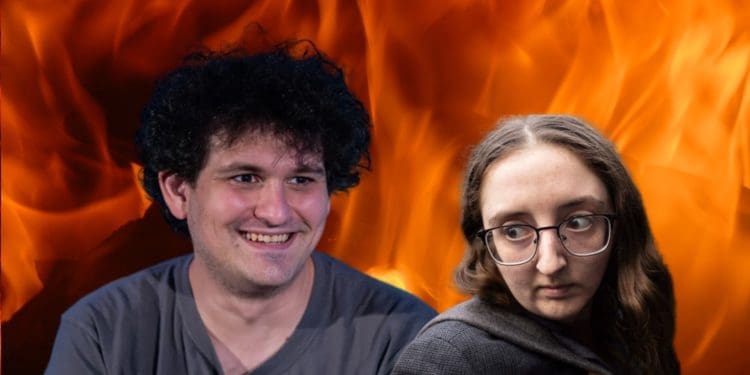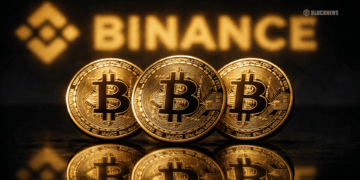- Sam Bankman-Fried testified in his fraud trial, seeking to deflect blame onto deputies and portray his firms as legitimate businesses.
- Bankman-Fried acknowledged mistakes but claimed the exchange failed due to errors, not fraud. He tried shifting blame to deputies like Caroline Ellison.
- The defense focused on justifying FTX and Alameda’s actions as standard practices, not fraud. However, the judge limited “advice of counsel” arguments.
On Friday, Sam Bankman-Fried took the stand in his criminal fraud trial related to the collapse of his crypto exchange FTX. In over 5 hours of testimony, the fallen crypto mogul sought to deflect blame onto his deputies and portray his firms as “legitimate and well-intentioned businesses.”
Bankman-Fried Claims He Made Mistakes But Did Not Commit Fraud
Bankman-Fried acknowledged making mistakes at FTX, with the biggest being not employing a risk manager. He stated that “a lot of people got hurt.” However, he maintained that the exchange failed due to errors rather than fraud. Bankman-Fried claimed he asked Alameda Research, his trading firm, to reduce risks, but that his deputies did not follow his instructions.
Former CEO Seeks To Shift Blame To Deputies
Throughout his testimony, Bankman-Fried repeatedly tried to shift blame onto his former colleagues like Caroline Ellison, Gary Wang, and Nishad Singh. He alleged they made major mistakes and business decisions without his input, portraying himself merely as an advisor. Bankman-Fried distanced himself from controversial actions like Alameda’s ability to have negative balances on FTX, stating his deputies implemented that system without his directive.
Defense Focuses On Legitimacy of FTX and Alameda
Bankman-Fried’s lawyer focused on framing FTX and Alameda as legitimate businesses. The defense provided justifications for actions like Alameda’s massive borrowing from FTX, portraying standard industry practices versus fraud. They also highlighted FTX’s terms of service allowing funds to be “clawed back” from users.
Judge Limits Scope of Defense’s “Advice of Counsel” Arguments
Before his testimony, the judge ruled Bankman-Fried can discuss FTX lawyers’ role in deleting internal communications. However, the judge prohibited broader testimony about lawyers advising on the legality of FTX’s business practices. This may limit Bankman-Fried’s ability to argue he relied on counsel’s advice.
Conclusion
Bankman-Fried’s testimony marked the start of his defense against fraud charges. His lawyer must now convince the jury that while mistakes were made, the FTX founder did not intentionally commit financial crimes. However, legal limitations imposed by the judge may hinder those efforts.














